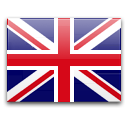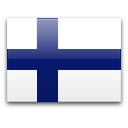The 1 on 1 of hair growth

The first thing you need to understand about hair and how it grows is that all hair grows and dies and it goes through a cycle – the hair growth cycle – which can take 3-5 years.
Life cycle of hair:
Hair grows from the hair follicle in repeated cycles. Each hair has an individual, independent life cycle. This can be divided into three steps:
1. Anagen – Hair growth phase.
About 85% of hair goes through a growth phase. Hereditary factors determine the duration of the individual growth phase. On average, it lasts 2-6 years. Hair grows an average of 10 cm per year.
2. Catagen – Transition phase of hair.
This phase takes 1-3 weeks. The hair follicle shrinks to 1/6 of its normal length. The lower part of the hair follicle atrophies and hair growth stops.
3. Telogen - Hair resting phase.
During the resting phase, which lasts 5–6 weeks, the hair does not grow, but is still attached to the hair follicle. About 10-15% of the hair is in this stage at the same time. At the end of the resting phase, the hair falls off and the growth phase, when the formation of new hair begins, starts immediately. If the old hair hasn't fallen out yet, the growing new hair will push it out of the way.
Did you know this?
- Each hair "lives" for about 2-6 years
- Hair grows about 1,2cm in a month
- When a hair falls out, new hair grows in its place
- About 50-100 hairs fall out every day
- The diameter of the hair is about 0.05–0.15 mm
-
All of this happens over a period of 3-5 years, and your hair cycle can last anywhere between that period.

1. Vitamins
Biotin is probably the first thing that comes to mind when considering supplements for hair care. It is a water-soluble vitamin that strengthens your hair by helping to produce keratin and also increases hair elasticity. If your hair is brittle and thinning, biotin can help restore all of this and speed up hair growth. It also has the ability to improve the condition of your skin and nails. These effects only last as long as you take the supplements and have some side effects. So…vitamin supplements can work, but consider a proper diet or just invest in a multivitamin supplement if you have a busy lifestyle and want to balance your nutrient and vitamin intake due to a poor diet.
MSM – An organic sulfur compound that is a chemical component of hair. It is used in the medical field to treat arthritis or muscle pain, to maintain healthy connective tissue, and to increase blood circulation. Increased hair growth is actually a side effect of MSM that many of us are happy about.
Vitamin D is an important vitamin for hair, as it supports the healthy functioning of hair follicles. Part of vitamin D is obtained from the sun and part through diet. However, those living in the North do not get enough sunlight during the dark winter, so eating a supplement is highly recommended.
Zinc plays an important role in the functioning of the hair follicle. In addition to hair loss, a lack of zinc can also lead to a weakening of the immune system and an imbalance in hormone function. Fortunately, however, zinc is easy to obtain from the diet. This is how you take care of your zinc intake: Foods containing a lot of zinc include hemp seeds, peanuts, cashew nuts and almonds. Legumes, meat and fish also contain plenty of zinc.
Selenium is a trace element that plays an essential role in hair growth and maintaining hair health. Selenium, for example, kills fungi that cause dandruff and protects hair from free radicals. Hair loss is one symptom of selenium deficiency.
Other hair vitamins include vitamin E, vitamin C, silicon oxide, folic acid, iodine, B2, B3, B12 and vitamin A.
A versatile supplement – this may be enough to improve your hair growth rate and cover any dietary deficiencies.

2. Medication
Medication can negatively affect your natural hair, causing thinning, brittle hair and even hair loss. I know, it's scary, right!? And the worst part is that you usually don't notice signs of a problem until 3-4 months after starting the medication. Certain medications in your heart or even birth control pills can affect hair growth by attacking the hair follicle, damaging it or even killing it. When taking any new medication prescribed by your doctor, make sure it doesn't affect your hair. If this happens, talk to your doctor about changing your medication and explain why.
3. Hair care
Do you do styles that mainly cover the scalp (extensions, knots, braids or pigtails) and do they stress the scalp so much that it feels painful or itchy? If you do and the thinning is already evident, you should give your scalp a break. Relieve tension and pressure, and most importantly, maybe even stop these hairstyles, if only for a while. Also, do not apply products directly to the scalp. The fact that you apply carefully from the base is a different matter when you apply the product directly to the scalp.

4. Products
This topic - Curly Girl Approved products - gets new students every day. So yes, there are a lot of products out there that have ingredients that are not good for your hair. They have bad ingredients that will take your hair off the healthy path you are looking for. Is your product filled with mineral oil, petroleum jelly, liquid paraffin? Also, is perfume one of the first ingredients in these products, and are most, if not all, of the ingredients synthetic? Some of the bad ingredients in these products prevent the scalp from breathing, which sounds pretty bad, right!? Remember that the skin is the largest organ in our body. These ingredients can also enter the hair follicles, damaging or killing them. You can also get scalp infections, allergies and if you already have sensitive skin… well, you know better than I do what it does to you..! The most important thing is that the brand of the products you use has a natural approach to ingredients like all Curly Girls Shop products.
5. Cleanse the scalp
Don't apply products to your scalp, especially those with bad ingredients for curly hair, and definitely keep your scalp clean! When I talk about washing a scalp, I mean washing it with shampoo. Co-wash does not remove all dirt or product ingredients that have accumulated on the scalp. Although cleansing conditioners have cleansing properties, they accumulate conditioning ingredients in the hair and scalp and do not leave the scalp clean. If oils, product ingredients, dirt and dust accumulate on the scalp, because it is never completely clean, it cannot "breathe". Your hair follicles are always blocked and therefore your hair cannot grow properly and the follicles can become "sick" and hair loss begins. Clarifying deep cleansing shampoo is recommended for everyone approx. 1x/month and otherwise normal (CG-approved) shampoo. You can find both categories separately in the online store.

6. Diet
I'm sure you've heard the phrase “You are what you eat!” and it's certainly true when we're talking about hair, healthy hair, or hair care. Although many people take great care of their hair by choosing good products, building a hair regimen that supports hair growth, and adopting certain hair care methods, they often forget that what they put in their mouths (their diet) affects their health. The hair that "pierces" through the scalp is the end product of what you eat. If your diet is high in saturated fat and sugar, low in healthy fats and vegetables, and you drink little water, your hair cannot thrive as it grows out of the scalp. While you may still achieve your desired hair length under these conditions, you will likely struggle with issues such as breakage, brittle hair, thinning, breakage… Hair health doesn't start from the moment it grows out of the scalp, it starts before that. Start by making your diet as varied as possible to ensure that you get all the nutrients your hair needs so that it can develop and grow on a strong foundation.

7. Herbs and oils:
Herbs – Ginger, turmeric, rosemary and green tea are anti-inflammatory herbs that you can use to make an oil product or paste and rub it into your scalp for hair growth treatment. You can add these to olive oil and massage your scalp.
Essential Oils – Peppermint, tea tree, eucalyptus, oregano and lavender are all good for treating inflammatory scalp conditions as they have antiseptic, antibacterial and antifungal properties and help with hair loss and stimulate hair growth. You can mix a few drops with olive oil and massage the scalp.
Castor Oil – this oil is loved by many and has anti-fungal, anti-bacterial properties and has been proven to help with hair regrowth and hair loss.

Green House Effect – Green House Effect is a hair method that requires oil to be applied to damp hair and covered with e.g. a shower cap/heat cap to create a warm environment. This is meant to keep curly hair nourished and moisturized all the time. You may not have thought about it, but heat also dilates blood vessels. Many proponents of this method claim to have seen their hair grow more than average.
Inversion Method – This is another hair method that involves massaging the oil into the scalp and turning the head down between the legs for a few minutes. When you massage and turn your head, you stimulate the blood vessels in your scalp and increase blood circulation. This is a hair growth method that has many followers who claim to see 2.5 cm in length in a week.
I hope you now have a good idea of how to improve your hair so that it grows healthy and strong. Many people think it's about supplements or products and just want a list and go to the store to buy them, but as you can see there is much more to hair growth. Review your hair care routine, develop a healthy hair regimen, and start tracking what makes your natural hair grow healthy and what slows down your progress.

Until next time!
Colourfull summer ☀️
Curly Girls Shop & Salon Enigma

Sources:
https://www.sim.fi
https://curlyhairlounge.com


